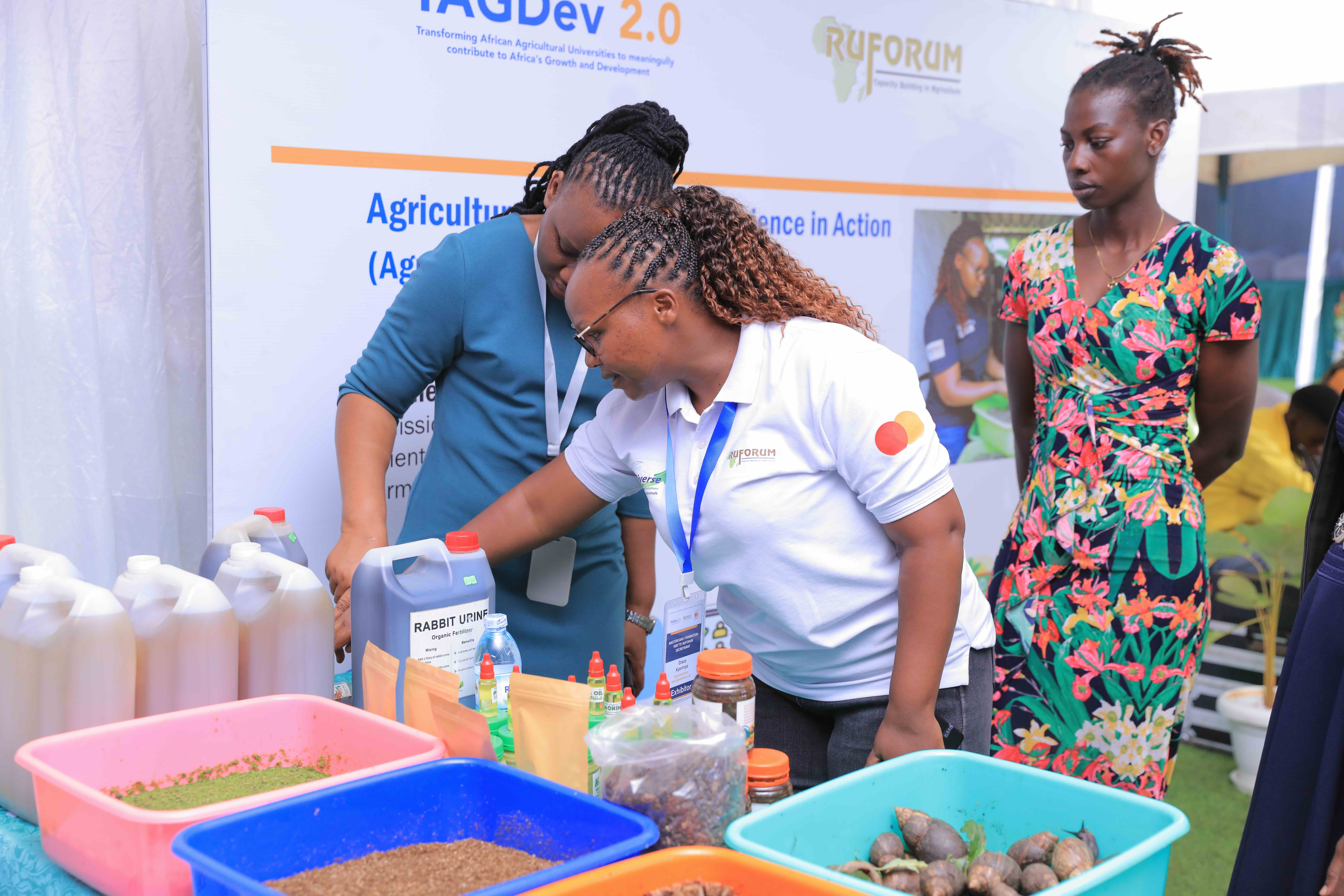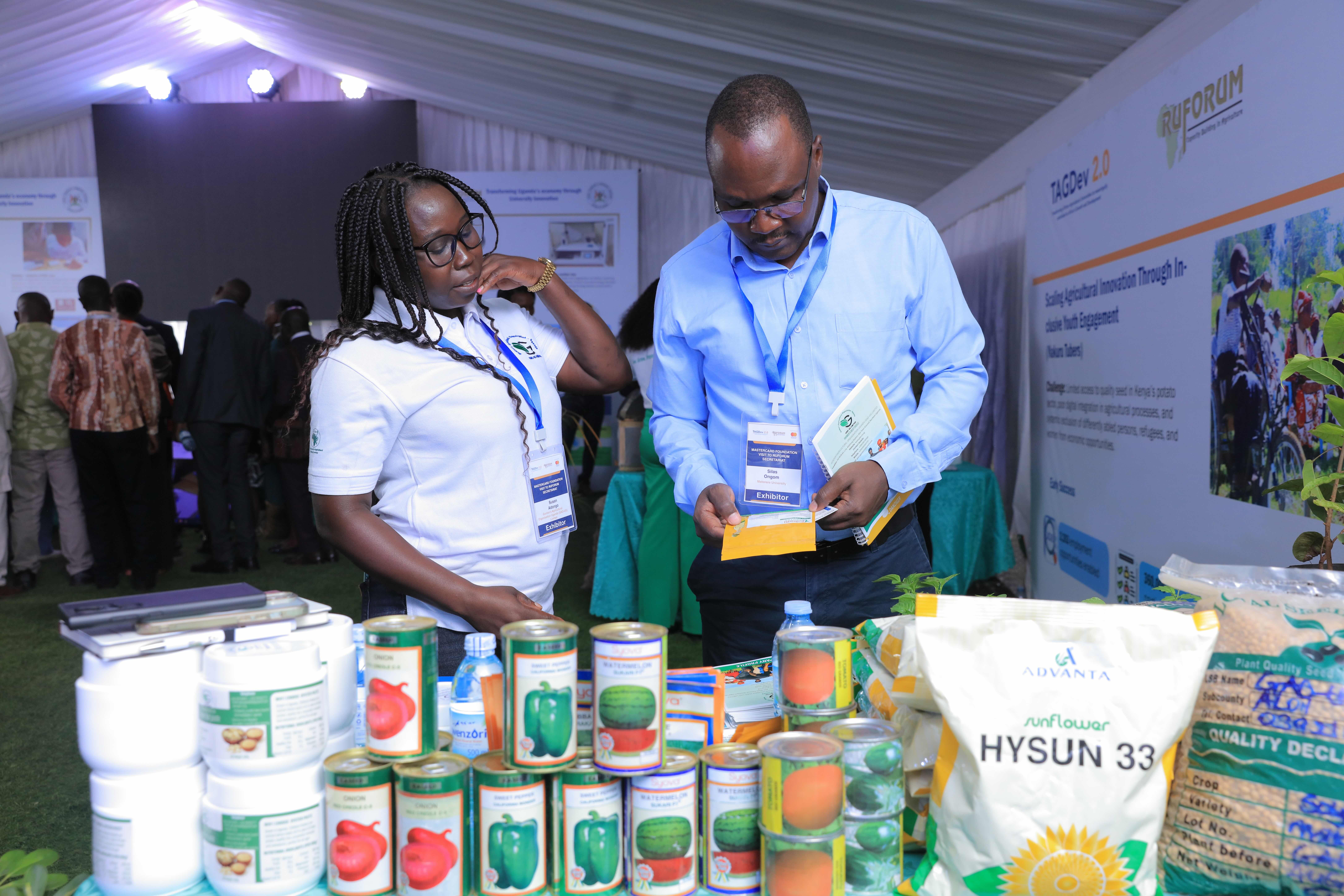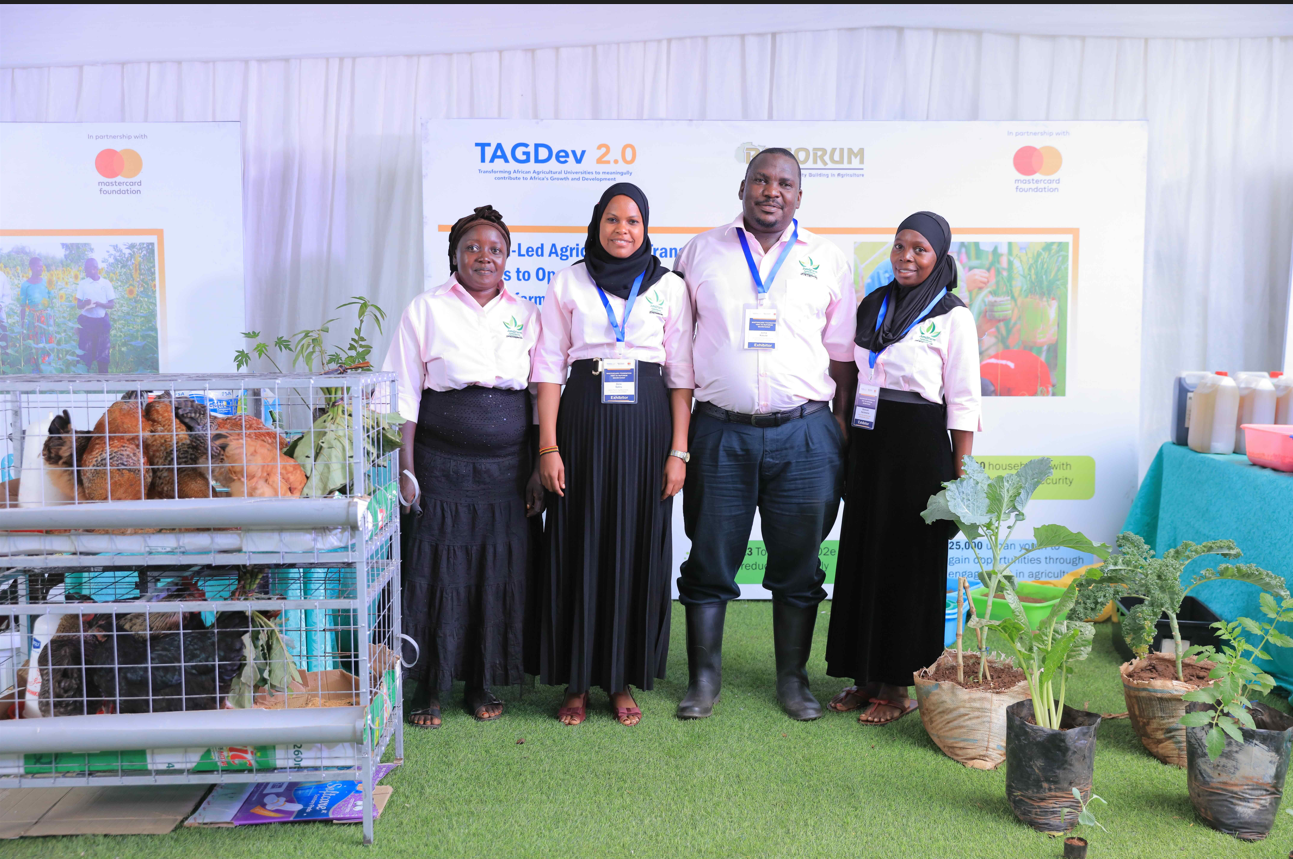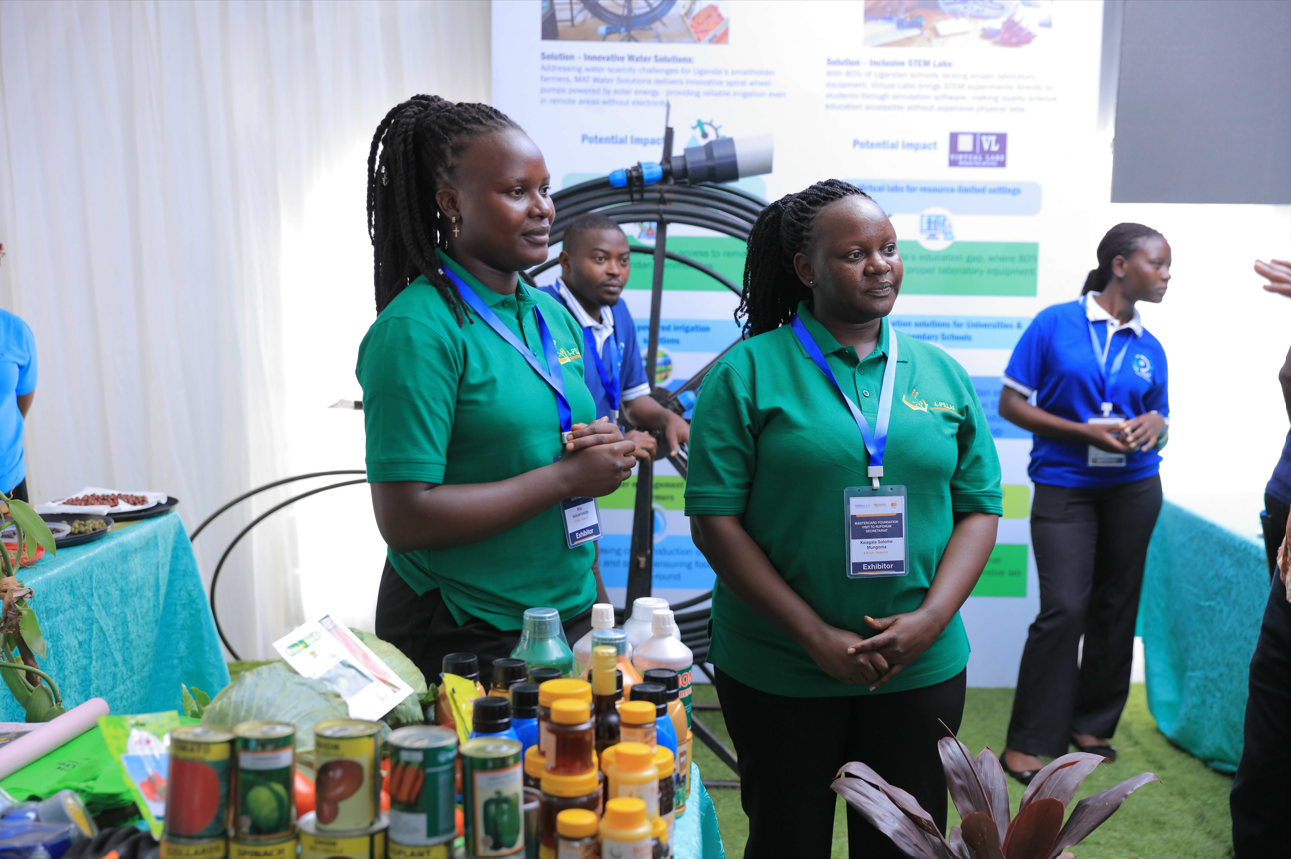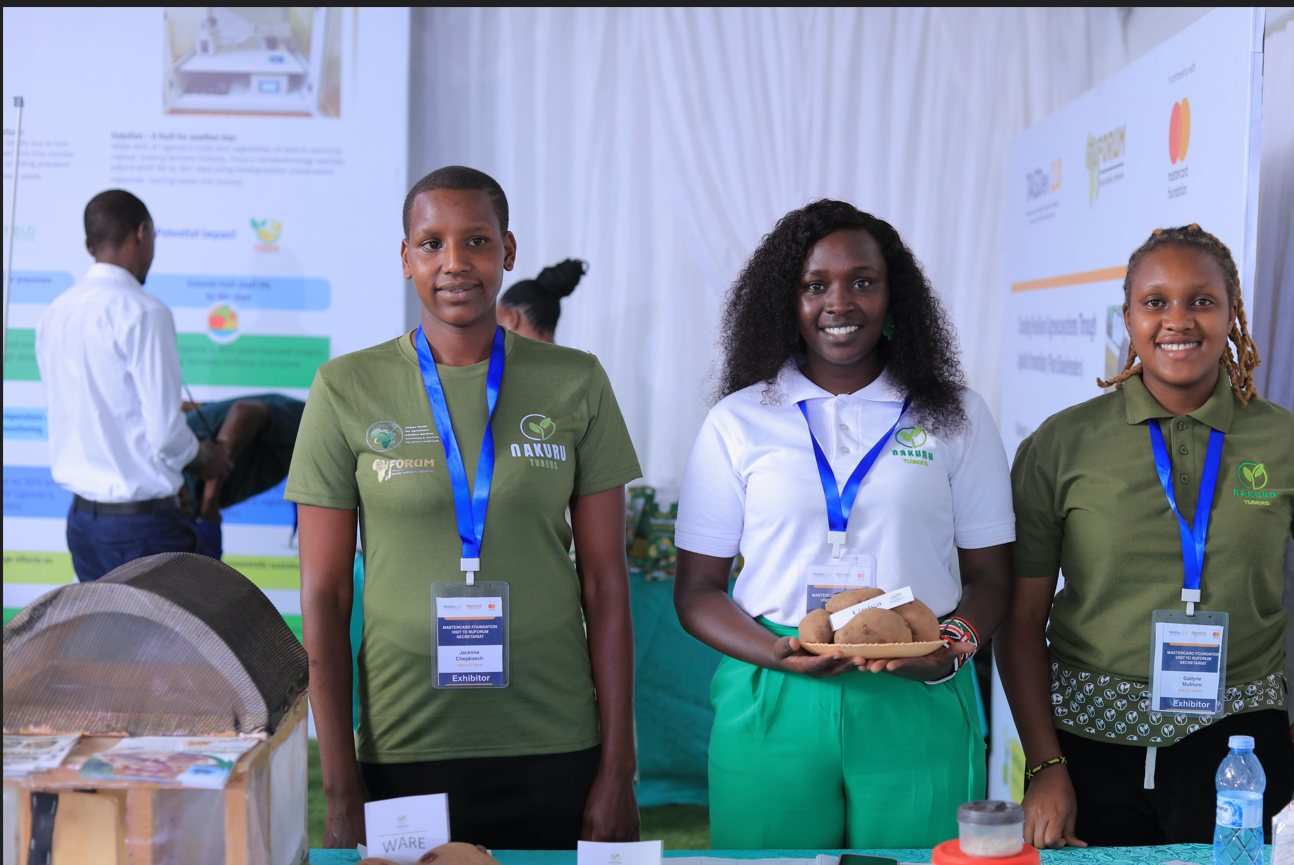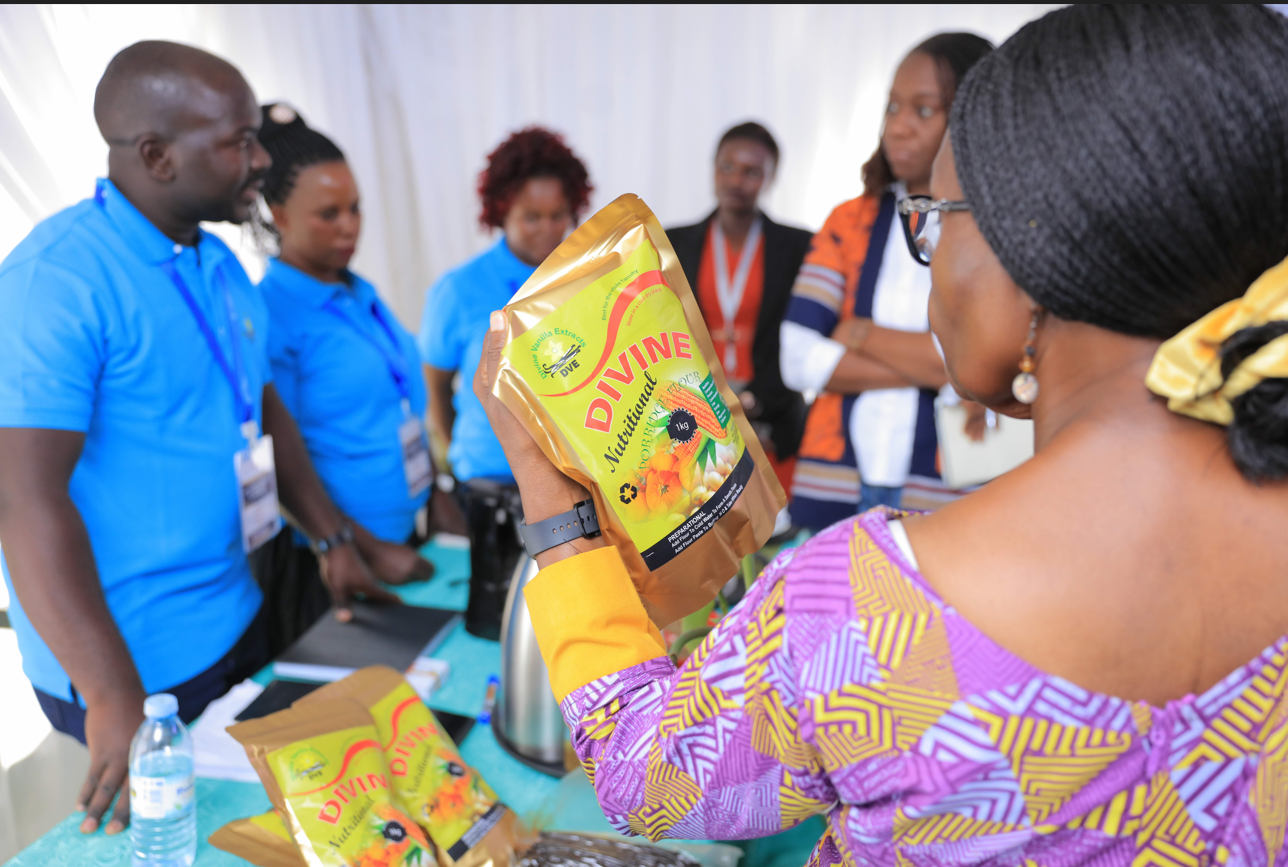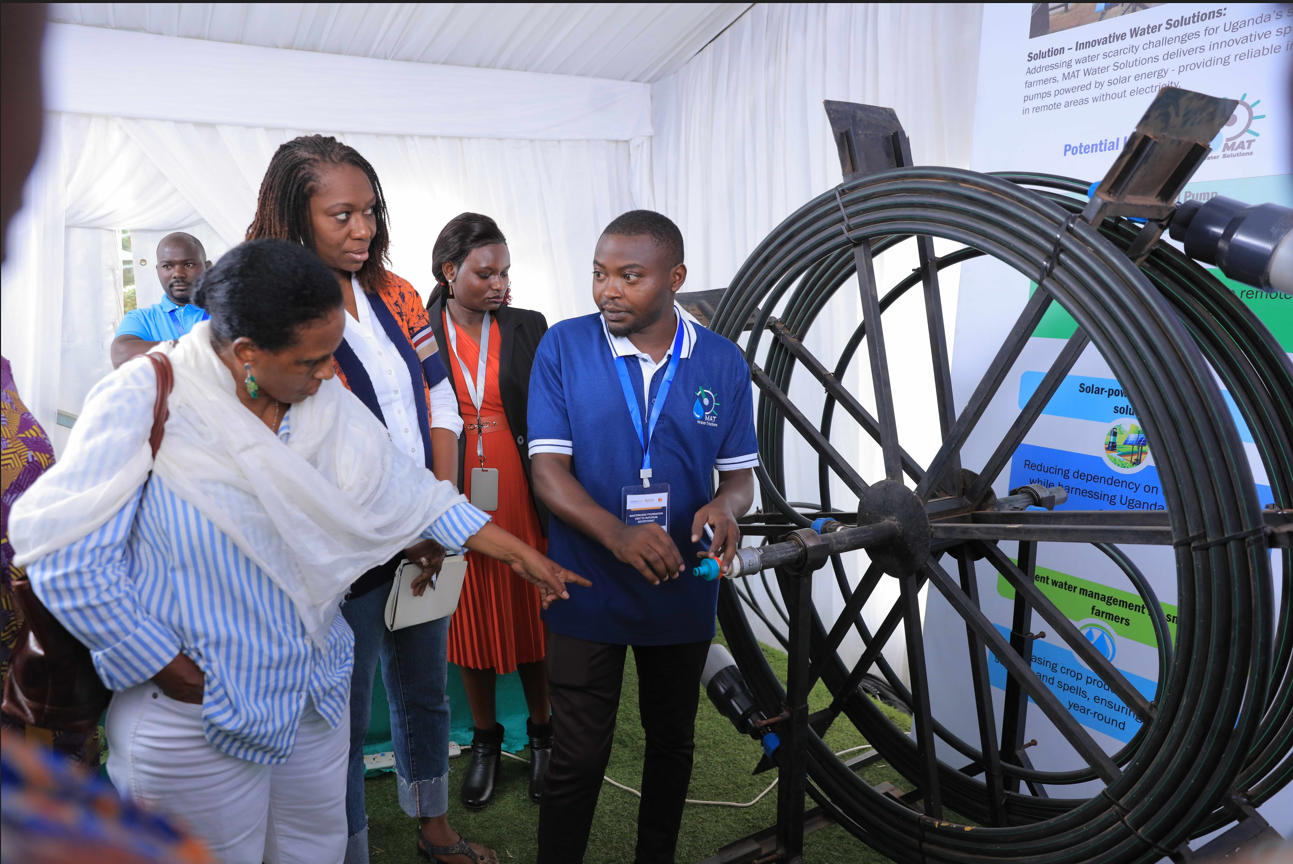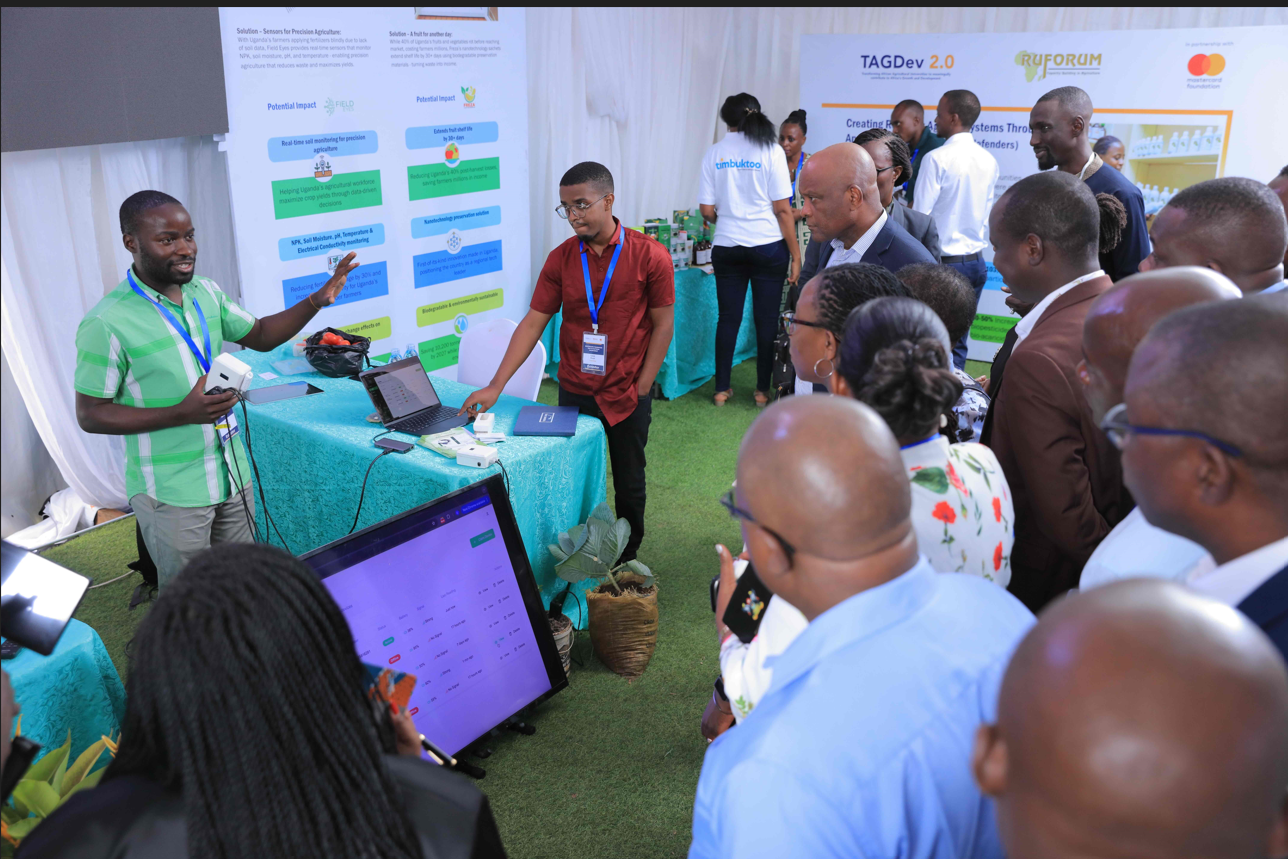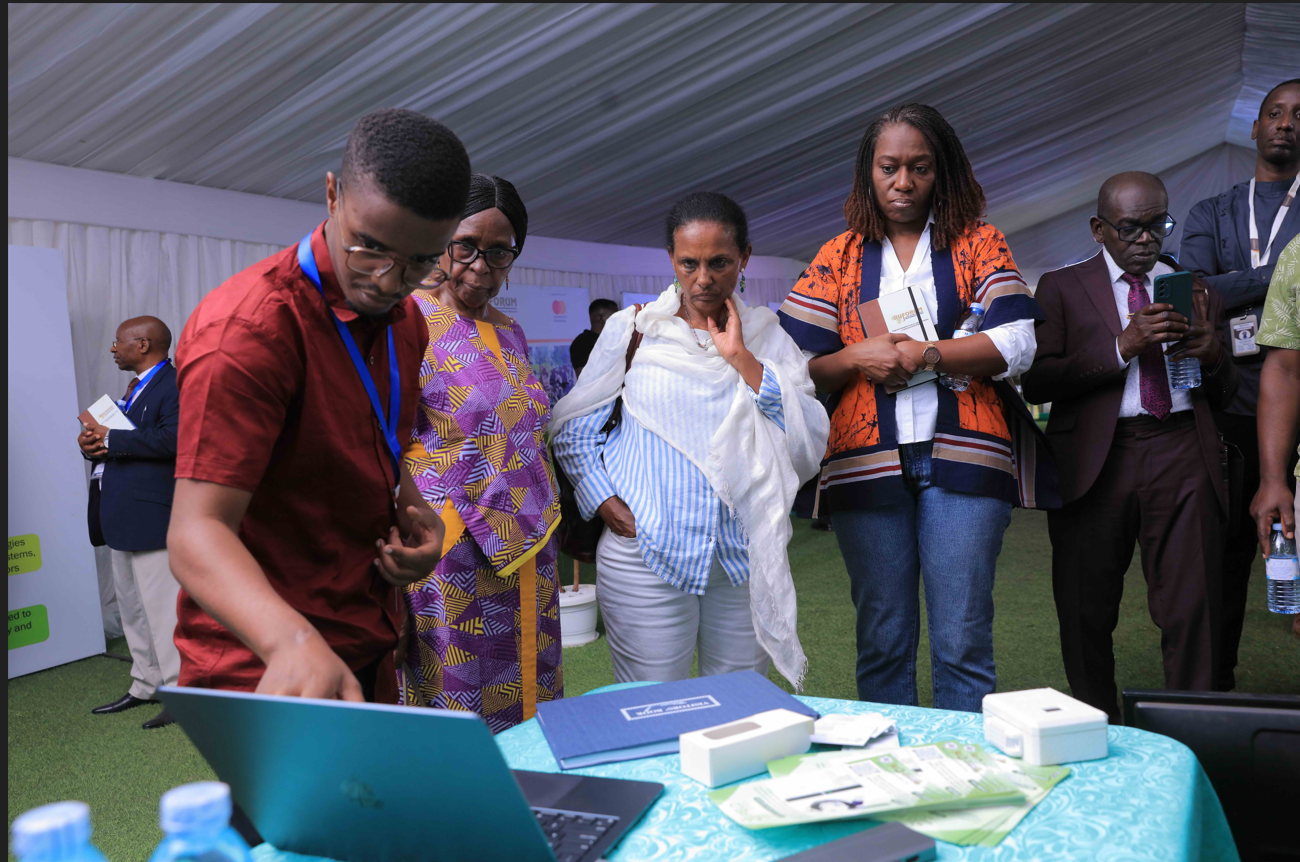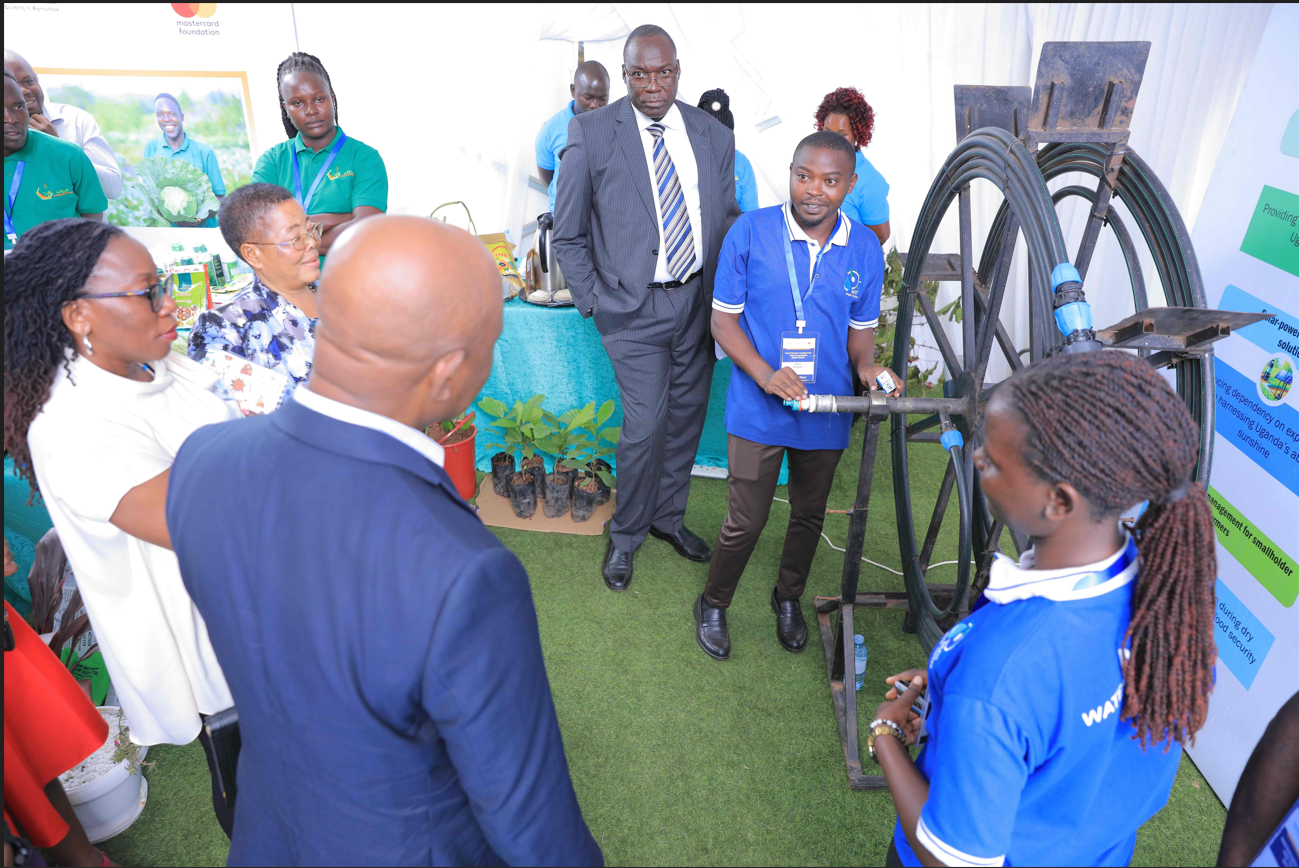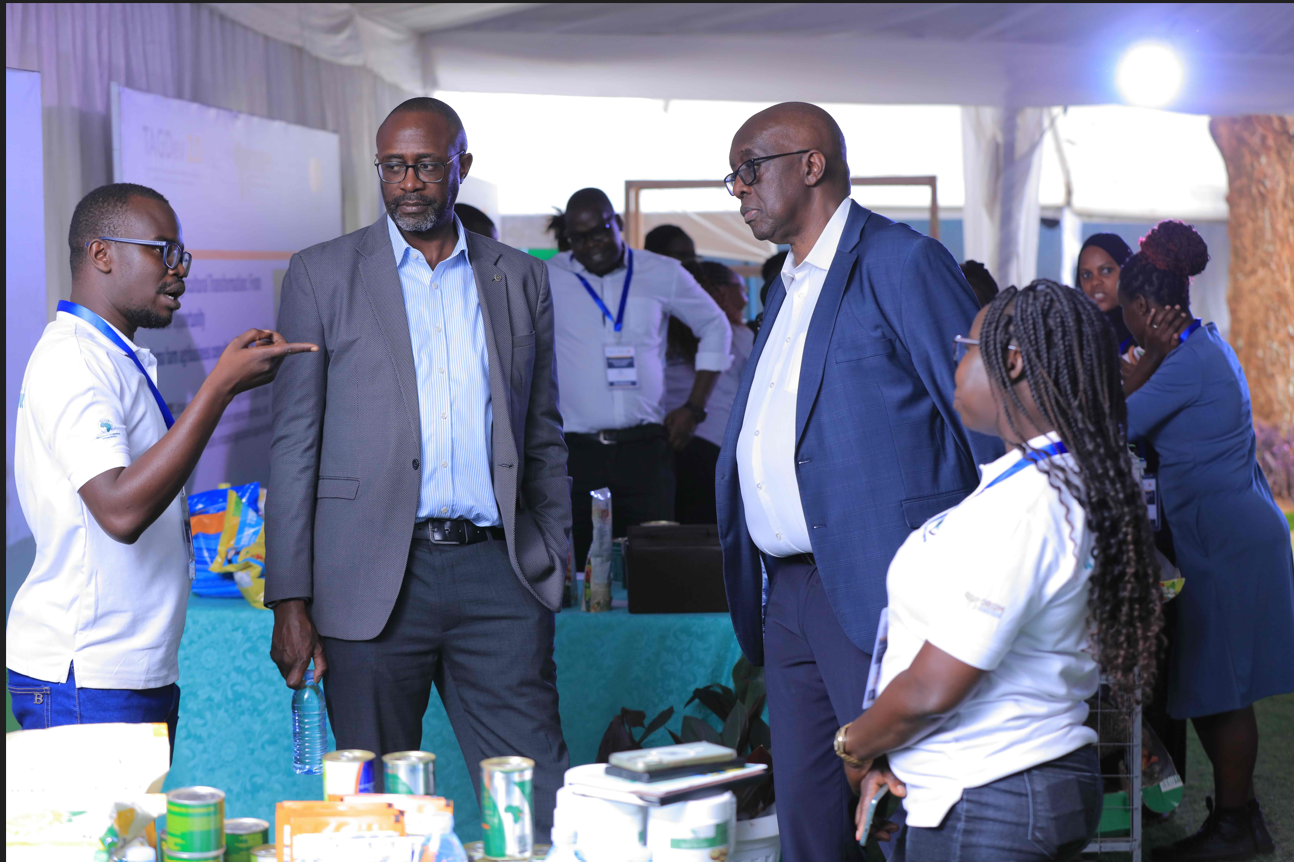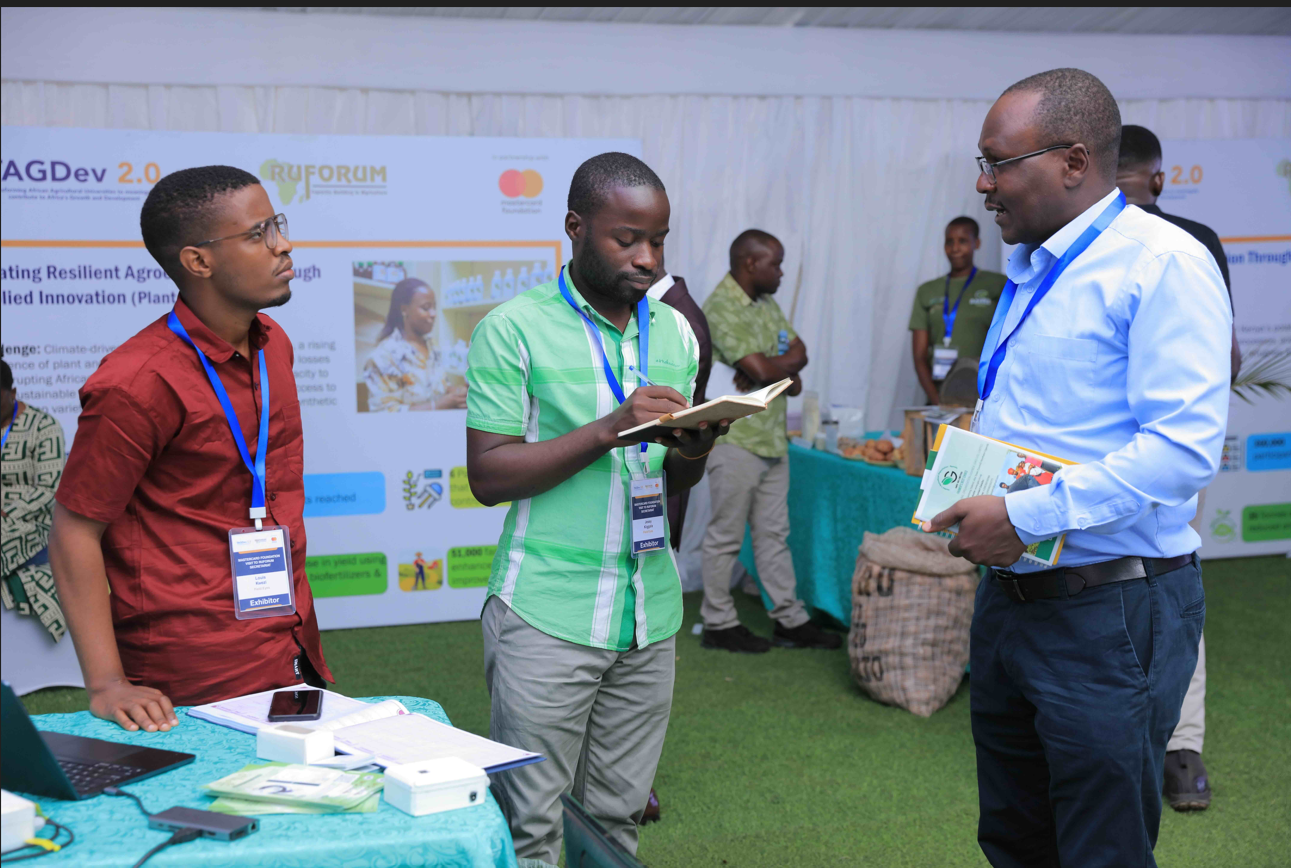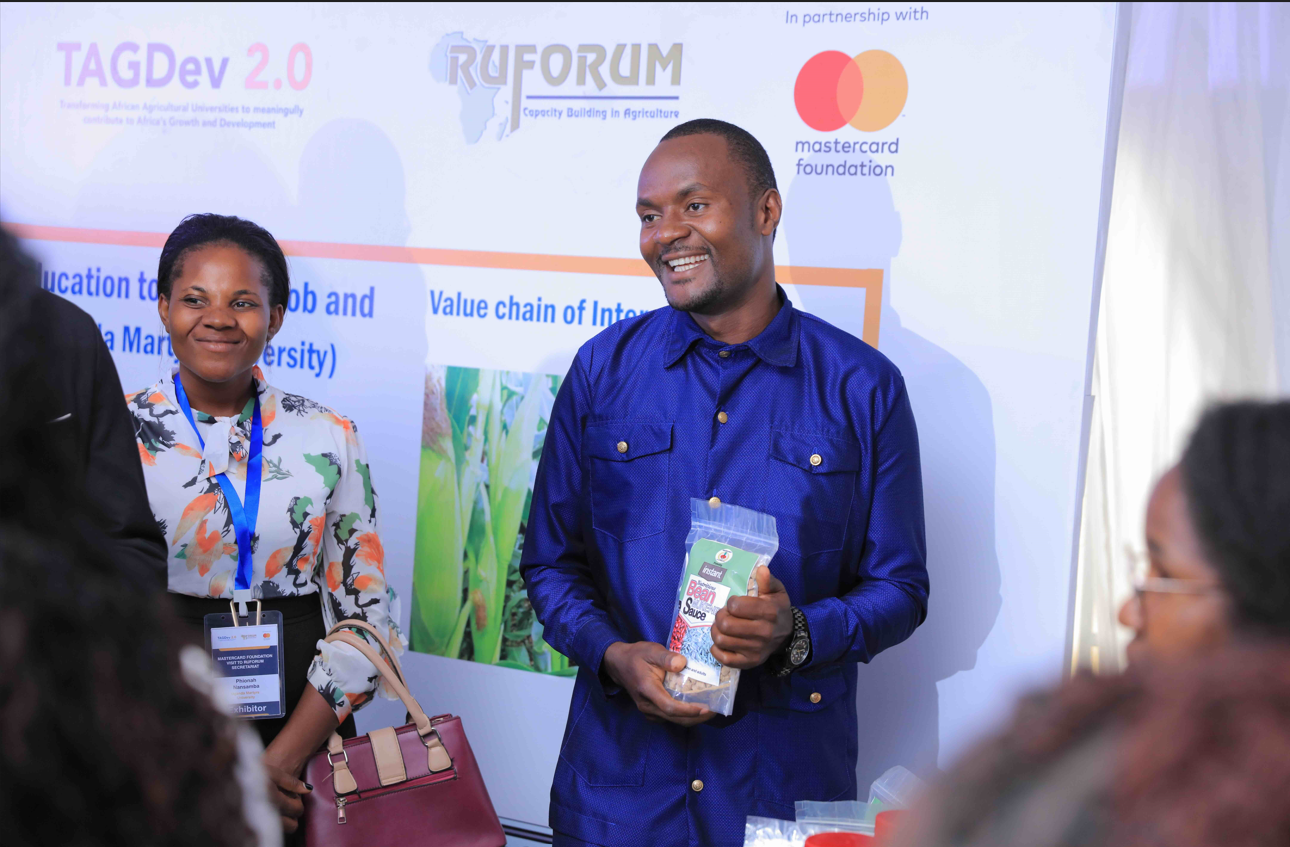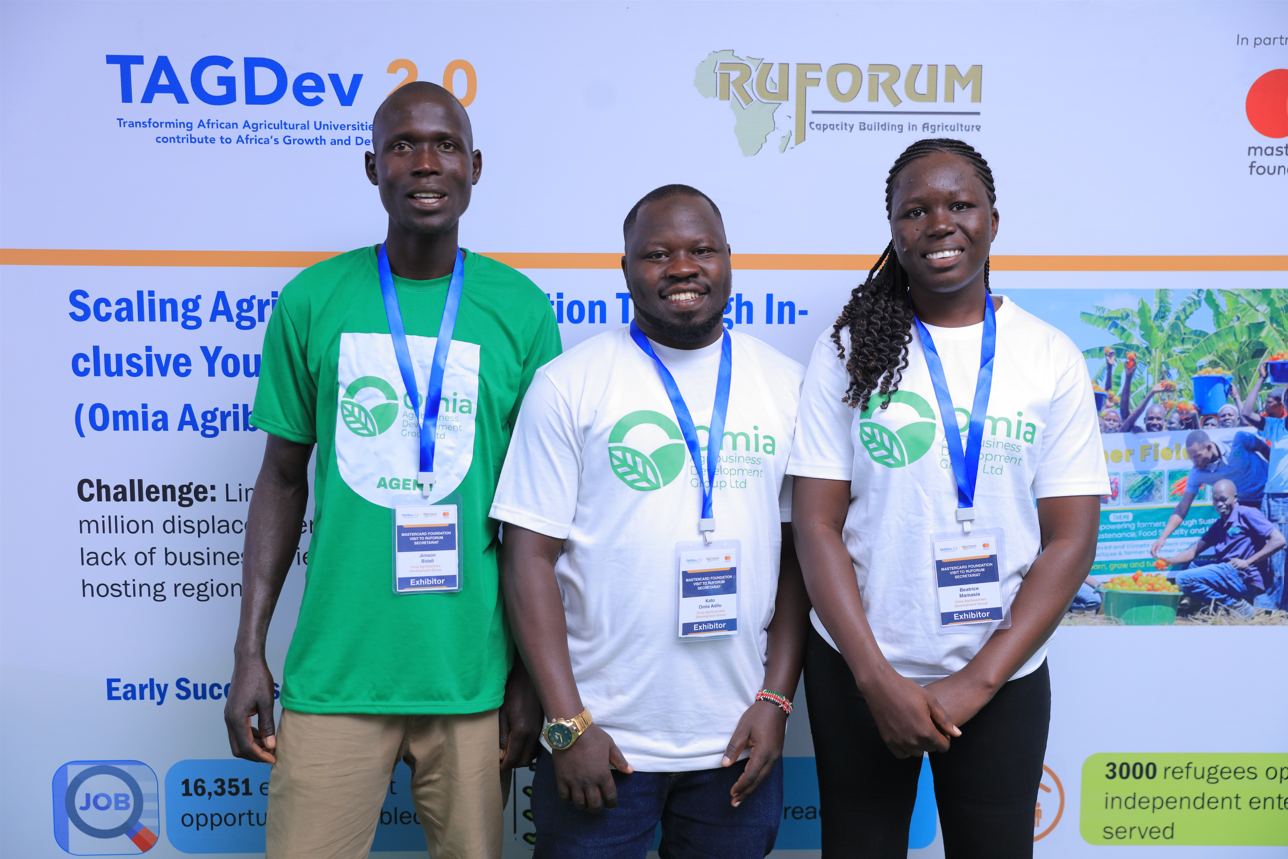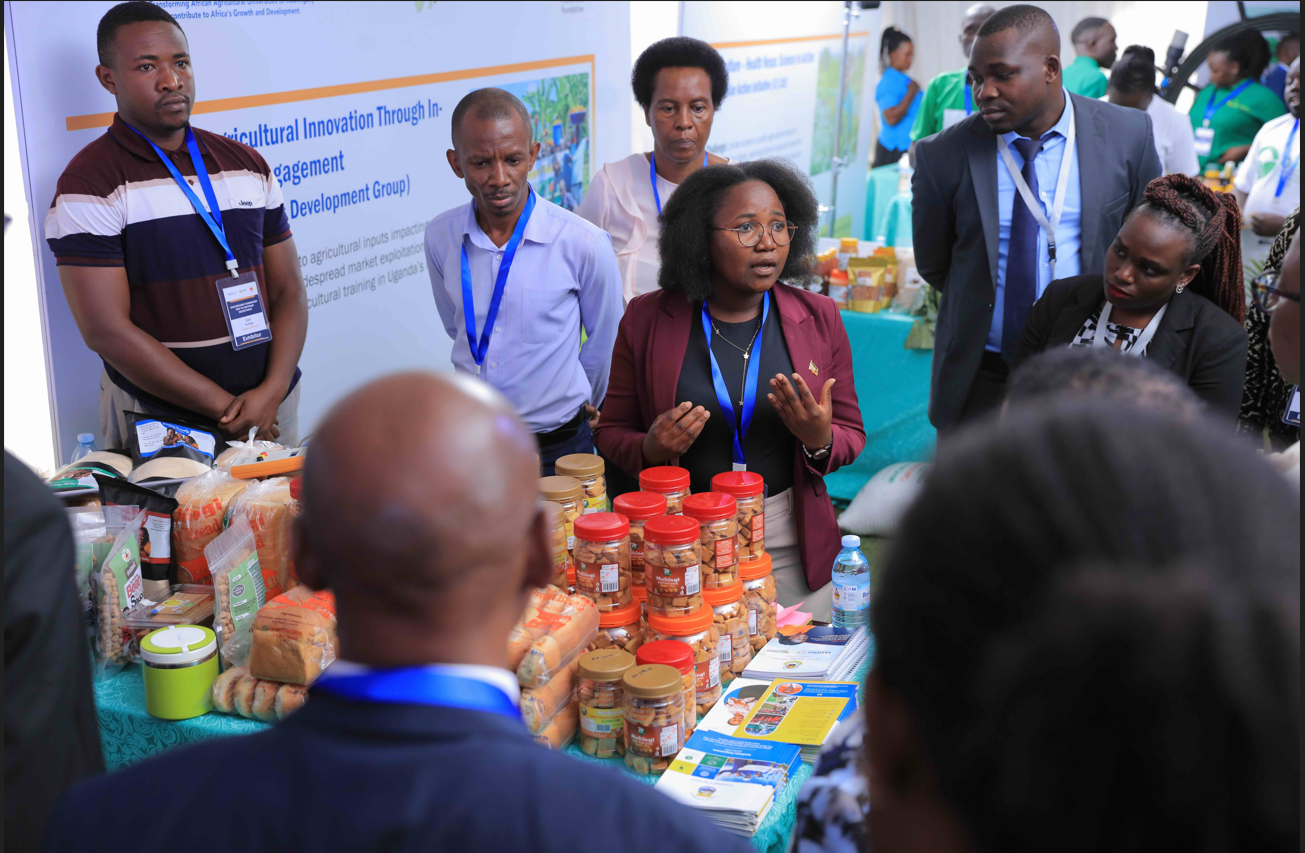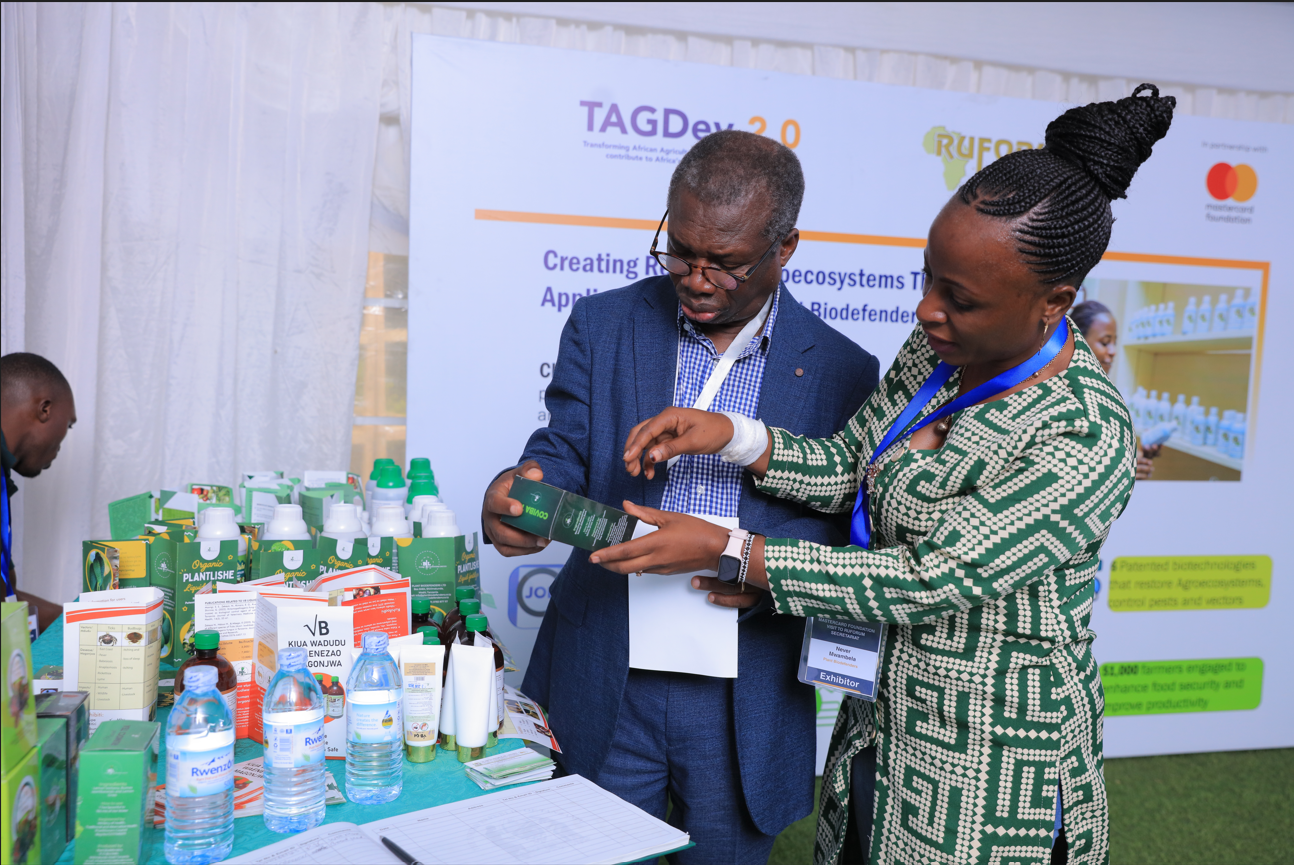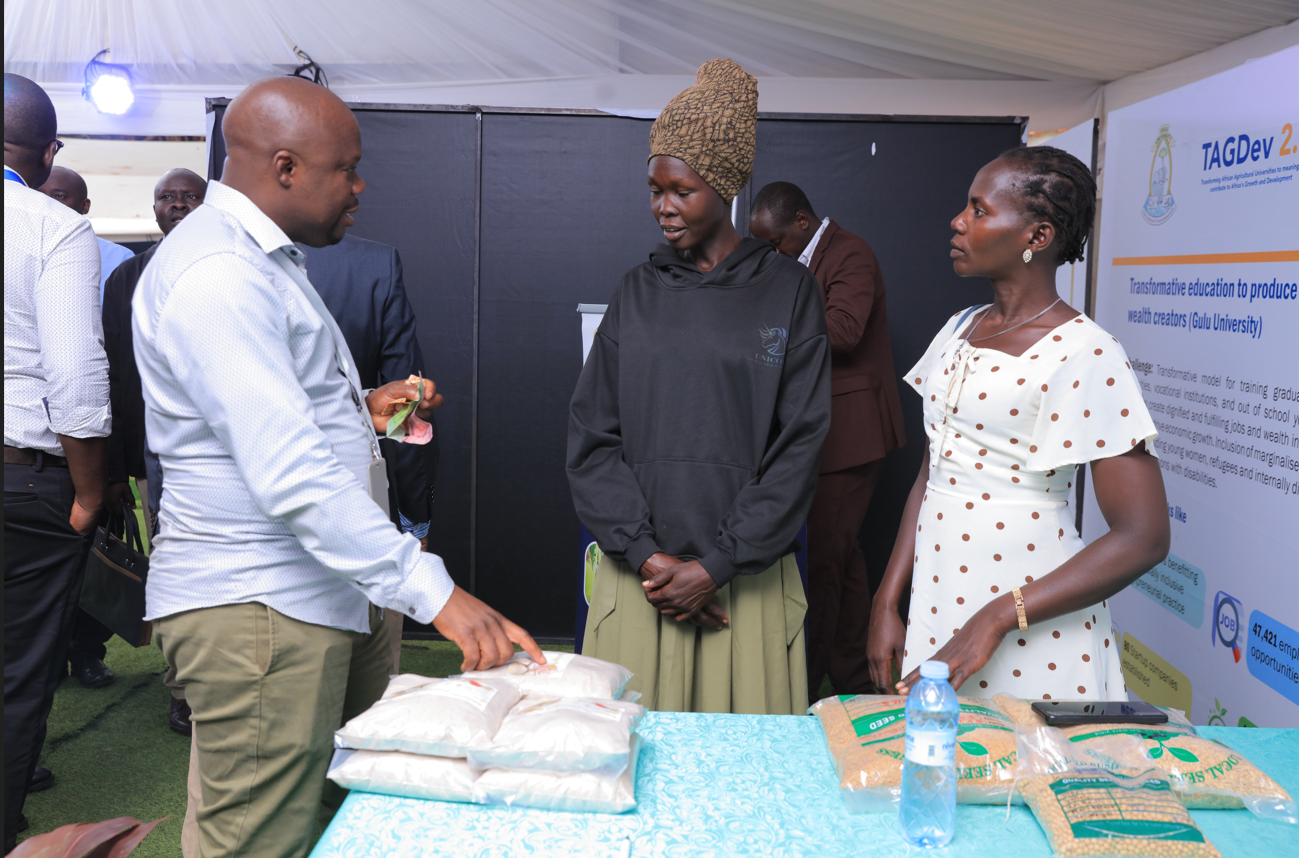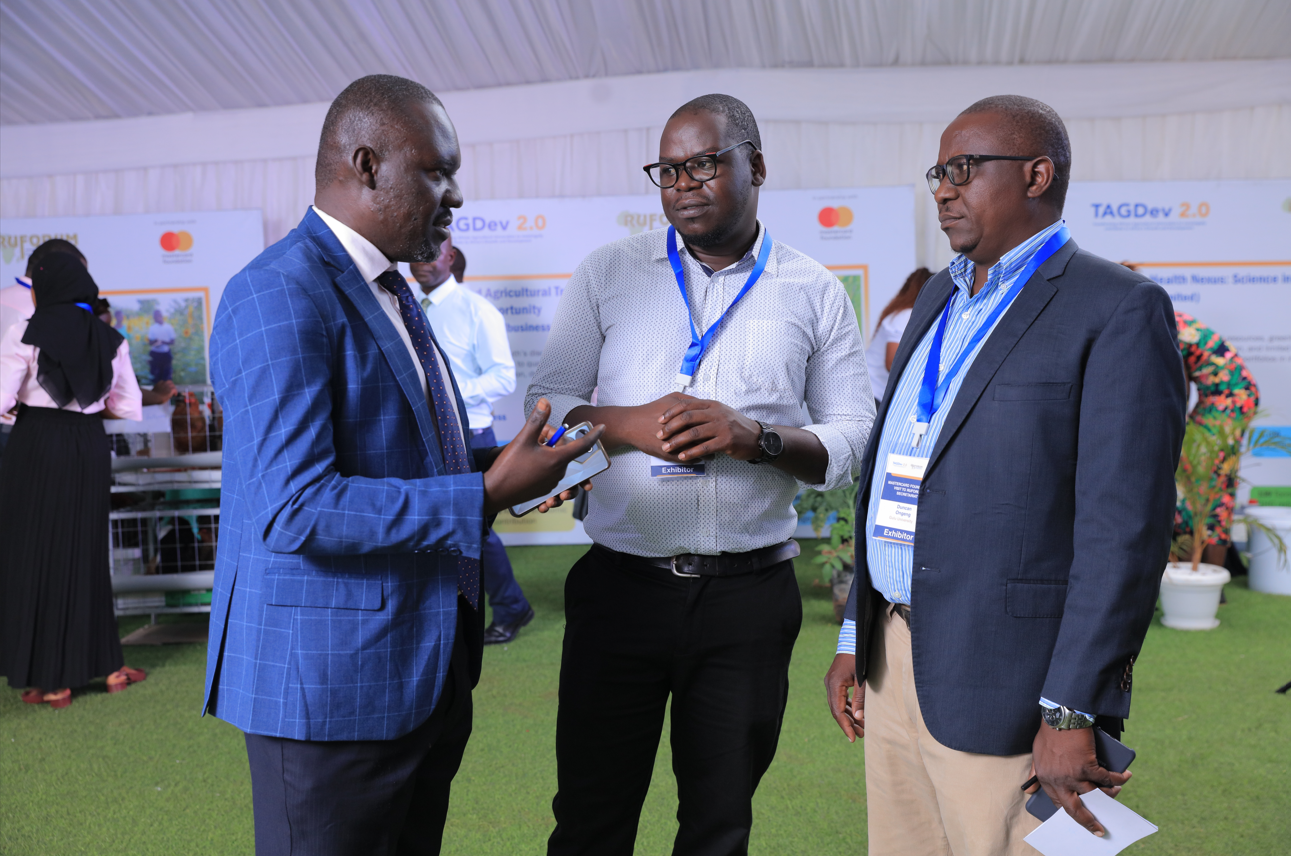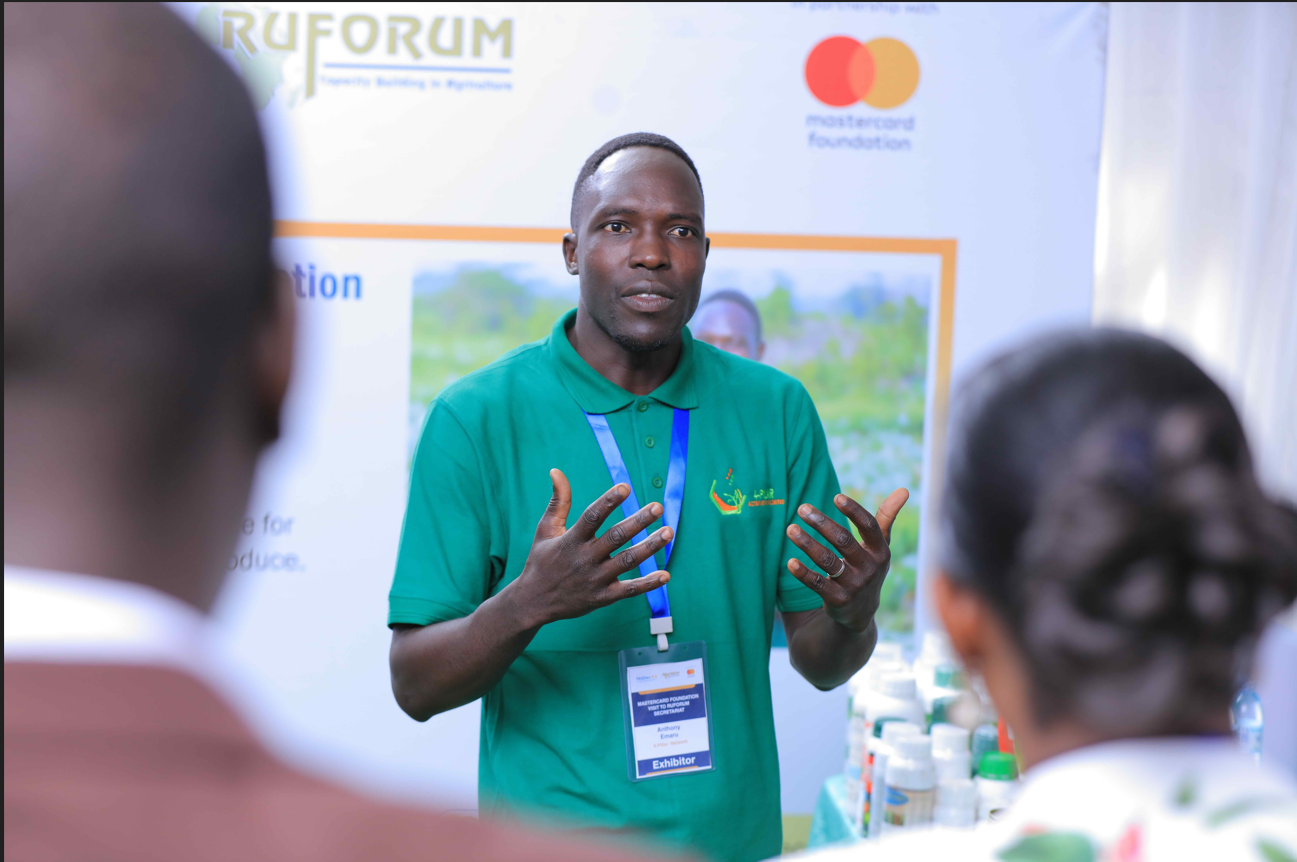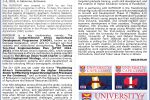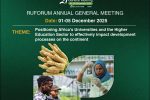TAGDev 2.0 UNDERPINS THE INTERFACE BETWEEN SCIENCE, INCLUSION, SUSTAINABILITY AND ENTREPRENEURSHIP: MASTERCARD FOUNDATION EXECUTIVE COMMITTEE VISIT TO THE RUFORUM SECRETARIAT
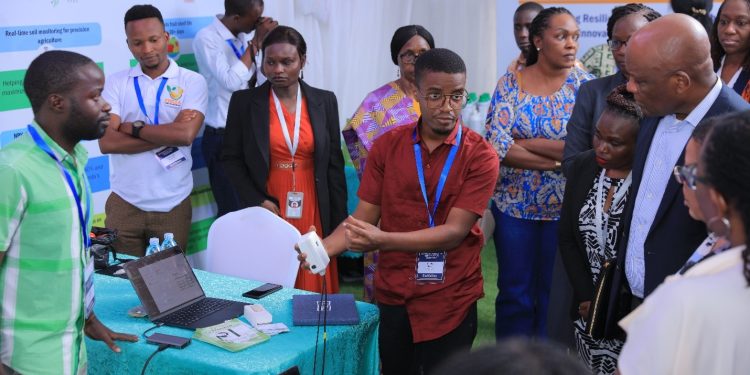
20 June 2025, Kampala, Uganda – In a memorable showcase of partnership and purpose, the Regional University Forum for Capacity Building in Agriculture (RUFORUM) recently hosted the Mastercard Foundation Executive Committee under the Transforming Agricultural Universities to meaningfully contribute to Africa’s Growth and Development (TAGDev 2.0) flagship programme. This momentous assemblage, held at the RUFORUM Secretariat, aimed to spotlight the programmes progress and the transformative impact of its member universities and alumni.
The TAGDev 2.0, a scaled-up extension that builds on the success of TAGDev 1.0, seeks to empower universities and Technical Vocational Education and Training (TVET) institutions to better serve communities by equipping Africa’s youth with the skills required for advancing climate-resilient agricultural transformation. Central to this programme is the integration of science and technology in developing sustainable and scalable solutions that promote inclusivity.
At the heart of the event was a showcase of ingenuity by TAGDev alumni in developing innovative science solutions derived from their research outputs. Twelve (12) alumni from different RUFORUM member universities, representing diverse backgrounds including women leaders, differently abled persons, and refugees, from Kenya, South Sudan, Tanzania and Uganda, took the mic to pitch their innovations. This was particularly compelling as it highlighted the intersection of science and entrepreneurship, showcasing how scientific knowledge can be translated into viable businesses to support sustainable agricultural practices. This piqued the interest of the Mastercard Foundation Executive Committee and the RUFORUM Governance Board, who provided valuable feedback and emphasized the importance of building a supportive ecosystem to further grow these viable enterprises.
The social enterprises making an impact
4Pillar Giveback Initiative (Uganda), by Anthony Emaru: This social enterprise addresses interacting challenges of poor access to quality agri-inputs in the horticulture value chains, limited ability of farmers to save for health care services, and price volatility of horticultural produce. The 4Pillar Giveback Initiative delivers quality seeds, extension and advisory services, market linkages and guarantees farmers referral to health care services in the local clinics where they are able to access quality health care services, saving them 25-kilometre distance trekking in the district of Luwero.
Beyond this, the team is equally active in agro-forestry planting over 8,000 fruit trees that are poised to create income in the near future but are already playing a carbon sequestration role and serving a climate change mitigation function.
Agrobiodiverse Solutions Ltd and UWEPO Ltd (Uganda), by Kyarimpa Grace: This social enterprise focuses on organic waste management by developing sustainable, high-quality, and affordable animal feeds and organic fertilizers. Grace employs biological resources, such as Black Soldier Fly larvae, earthworms, snails, Azolla, duckweed and moringa to improve livestock nutrition, soil health, and plant growth while advocating for environmental sustainability. Particularly noteworthy is the extraction of snail slime, which is utilized to develop skincare products like soaps and body lotions.
Divine Enterprise Ltd (Uganda), by Kawooya Joseph: This social enterprise is positioned in the lucrative vanilla and coffee value chains that are rapidly growing in Uganda but facing numerous challenges including price volatility, low quality produce and poor post-harvest management, and limited financial access for unbanked populations. Divine Enterprise Ltd addresses these challenges through social mobilisation and aggregation of farmers into farmer groups, credit-based input advancement to farmers, integration of social based lending to farmers, and value addition to vanilla and coffee.
Field Eyes (Uganda), by Jessy Sean Kiggala and Louis Kwezi: This youth-led innovation is revolutionizing how farmers approach productivity through smart, data-driven tools. At the heart of their solution is a solar-powered, internet of things-based device equipped with sensors for testing macro soil nutrients, soil moisture, temperature, and humidity. This hardware is connected to a digital platform for real-time analytics, visualization, and automation, enabling farmers to make timely and informed decisions.
Targeting small and medium-scale commercial farmers, cooperatives, input dealers, and agricultural development partners, Field Eyes offers a suite of services including remote monitoring, and predictive insights. This addresses data challenges like the misuse of fertilizers and irrigation mismanagement.
Field Eyes empowers its users to optimize resource use, reduce operational costs, automate irrigation, and predict yields. The result is a more resilient, traceable, and transparent agricultural value chain. By integrating precision technology with local farming realities, Field Eyes is not just providing tools it is shaping the future of sustainable agriculture in Uganda and beyond.
Freza Nanotech (Uganda), by Gift Arnold Mugisha: This pioneering social enterprise is tackling the global challenge of post-harvest losses through affordable, eco-friendly preservation technologies. Headquartered in Uganda, Freza develops biodegradable sachets, bags, and stickers that use nanoparticles from agricultural waste to extend the shelf life of fruits and vegetables by up to 30 days without the need for refrigeration or chemicals.
The founder built a custom electrospinning machine which is now used to locally manufacture the nanotech-based preservation products. This in-house innovation significantly reduces production costs while enabling scalable, tailored solutions for the local context.
Freza’s core mission is to serve smallholder farmers, vendors, and retailers especially women who produce the majority of food in Uganda. Its products have been proven to reduce spoilage by up to 95%, increase incomes, and improve food security. The biodegradable solutions are non-toxic and are designed to meet the challenges of underserved communities in the Global South.
Freza’s work enhances livelihoods and reduces methane emissions from rotting produce tackling food waste and climate change at the same time. With its unique blend of science, sustainability, and grassroots innovation, Freza Nanotech is redefining post-harvest preservation for a more food-secure future.
Gordon Agricultural Organisation – Uganda (GAO-UG), by Gordon Akejo and Suzan Adong: GAO-UG is a youth-led social enterprise based in Alebtong District, Northern Uganda. They partner with farmers from seed to market, through trusted Community Agricultural Promoters (CAPs), most of whom are youth and persons with disabilities. GAO-UG provides last-mile agricultural inputs, technical support, and low-cost irrigation services directly to farmers’ homes – to date, GAO-UG has constructed 257 hand-dug wells and 250 solar-powered water irrigation systems to mitigate water scarcity, as well as microfinance solutions, practical agricultural training, and market linkages, enabling smallholder farmers to earn with dignity and grow sustainably.
Juma Farms Ltd (Uganda), by Zena Saliru: This social enterprise provides quality agri-inputs, extension services, and promotes the participation of urban youth in agriculture while employing mainly differently abled people. Juma Farms Ltd also offers services such as soil testing – through soil sampling and testing, farmers are able to understand the nutrient needs of their land, allowing them to apply the right fertilizers at the right time for better crop growth and harvest. Furthermore, the company conducts regular training sessions for urban youth on best agricultural practices.
MAT Water Solutions (Uganda), by Matia Ategeka: This enterprise is transforming water access for smallholder farmers with its groundbreaking Spiral Water Wheel Pump, a mechanical water-lifting solution that requires no electricity, no fuel, and no solar power. Designed to address the chronic lack of affordable irrigation options in rural and agricultural communities, this innovation offers a low-cost, eco-friendly alternative for sustainable water access.
Developed and distributed in Uganda, MAT Water Solutions provides four pump models (MAT 1–4), priced between 1.5M and 4.5M UGX. The pumps serve diverse needs from irrigation to livestock watering and domestic supply. The company also offers installation, maintenance, and user training services to ensure long-term efficiency and community empowerment.
With a business model rooted in direct sales and NGO partnerships, MAT Water Solutions is enabling increased crop productivity, improved rural livelihoods, and enhanced food security. The pump’s independence from external power sources makes it ideal for off-grid areas, promoting climate-smart agriculture and environmental resilience.
By combining traditional ingenuity with modern impact-driven entrepreneurship, MAT Water Solutions is proving that sustainable irrigation can be both accessible and affordable for the communities that need it most.
Nakuru Tubers (Kenya), by Winnie Wambugu: Founded by a passionate team of young Kenyan agricultural researchers, Nakura Tubers is transforming Kenya’s potato industry by providing smallholder farmers with disease-free, high-yielding potato seedlings. Using tissue culture technology and hydroponic systems, Nakura Tubers boosts seed potato yields by 120%. This innovative approach reduces dependency on farm-saved seeds, minimizes the spread of pests and diseases, and helps farmers adapt to climate change while ensuring food security. This enterprise is also recognised for its inclusive efforts in training farmers who are abled differently on certified potato production.
Omia Agro Ltd (Uganda and South Sudan), by Kato Omia: The social enterprise addresses limited access to agri-inputs, market exploitation and the need for farming as a business among excluded demographics (refugees, persons with disability and young women) in West Nile, northern and mid-western Uganda extending to the boarders of South Sudan. Omia Agro Ltd, addresses these challenges and needs through a bundled services approach that includes agri-inputs distribution, negotiated markets, cold-chain and demand driven extension services.
Plant Biodefenders (Tanzania), by Dr. Never Zekeya: This enterprise manufactures Vuruga Biocide, an innovative, cost-effective, and environmentally friendly biopesticide produced as a result of extensive research. Plant Biodefenders deploys five (5) patented climate smart technologies including biofertilizers, bioacaricides for ticks, and biopesticides for crops. The company sells its biopesticide to village agricultural input distributors, wholesalers, agri-companies and directly to growers of various crops. Furthermore, Plant Biodefenders provides extension and advisory services to Tanzanian smallholder farmers.
Virtual Labz (Uganda), by Mackenzie Tuhirirwe: This enterprise is reimagining science and technology education by removing the physical and financial barriers to lab-based learning. Designed for students and educators in resource constrained secondary schools, TVETS and universities, the platform provides an interactive environment where experiments in chemistry, biology, physics, electronics, and other STEM fields can be conducted virtually anytime, anywhere.
With just a computer and internet connection with options of offline use, users can build circuits, simulate reactions, and explore complex scientific concepts without needing physical expensive lab equipment or risk safety. By harnessing the power of virtual and augmented reality, Virtual Labz delivers immersive, real-world lab experiences that promote creativity, critical thinking, and practical skills.
Initially launched as an academic initiative, Virtual Labz is now evolving into a scalable edtech enterprise. Its business model includes subscription plans, licensing for institutions, and partnerships with schools and education-focused organizations. This structure enables broad accessibility while maintaining a sustainable path to growth.
At its core, Virtual Labz bridges the gap between theory and application. It not only enhances engagement in STEM subjects but also equips learners with industry-relevant competencies empowering the next generation of scientists, engineers, and innovators. In an era where digital access defines opportunity, Virtual Labz is making sure no student is left behind in the lab.
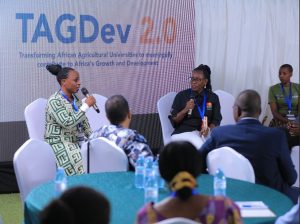
Another essential part of the convening was the panel discussion that delved into critical questions surrounding universities capacity to support trademarks and the role of higher education institutions in facilitating the commercialisation of innovative research ideas. Furthermore, the discussions amongst others explored issues of inclusivity, particularly financial inclusion for differently abled persons and refugees.
The constructive feedback from participants underscored that scaling these innovations requires not only financial resources but also a collaborative effort among universities, government, and private sector partners for market access and sustainability. The event facilitated the formulation of additional action plans to improve the TAGDev 2.0 programme among its value-chain stakeholders, such as the participating universities, programme delivery partners and the young innovators driving its implementation.
The day served as a pivotal moment in advocating for a more inclusive, sustainable and science-driven approach to agricultural transformation in Africa. The discussions raised critical questions about the collective responsibility in ensuring that every young innovator’s endeavor has the opportunity to succeed for the required agricultural transformation in Africa.

Beyond this event, RUFORUM aims to strengthen collaboration with the Mastercard Foundation to provide business development support services, enabling youth to scale their initiatives to reach their full potential. Therefore, this event not only celebrated the progress of TAGDev 2.0 but also reinforced RUFORUMs commitment to fostering sustainable growth through science, inclusion, and entrepreneurship across Africa.

